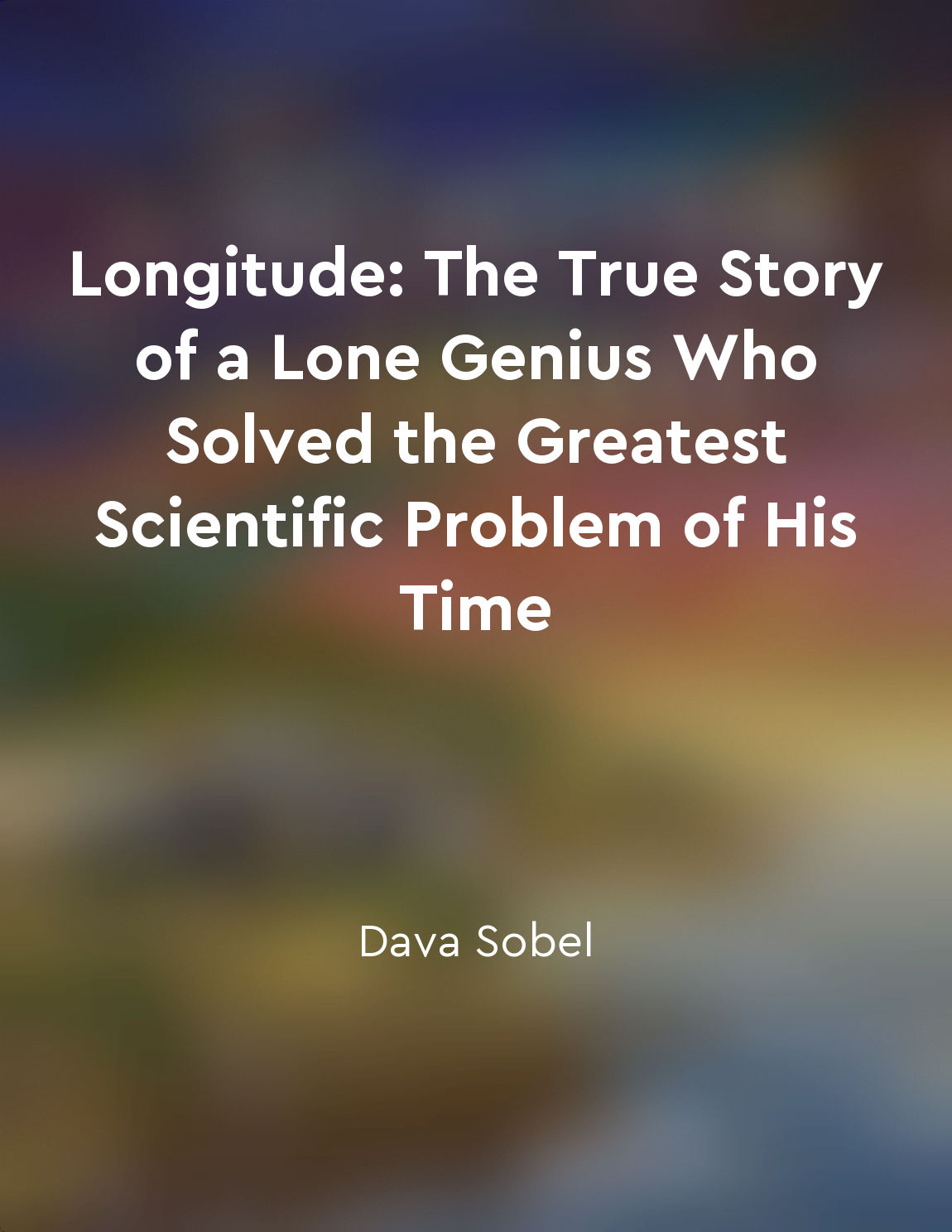Longitude Act of 1714 from "summary" of Longitude: The True Story of a Lone Genius Who Solved the Greatest Scientific Problem of His Time by Dava Sobel
In 1714, the British Parliament passed an act that offered a substantial reward for anyone who could solve the problem of determining longitude at sea. This act was a response to the numerous maritime disasters that were occurring due to the inability of sailors to accurately pinpoint their location on the open ocean. The Longitude Act of 1714 established a Board of Longitude, which was responsible for evaluating proposals and awarding the prize money to the individual or group that could provide a workable solution. The board was comprised of some of the most eminent scientists and navigators of the time, including Sir Isaac Newton and Edmond Halley. The act stipulated that the solution had to be accurate to within half a degree of longitude, or approximately two minutes of time. This was a daunting challenge, as existing methods for determining longitude were unreliable and often led to disastrous consequences for ships and their crews. Many people attempted to claim the prize, but it was not until John Harrison, a self-taught clockmaker, entered the scene that a viable solution was found. Harrison spent decades perfecting his marine chronometer, a clock that could keep accurate time at sea despite the rocking and rolling of the ship. Harrison's chronometer revolutionized navigation and made it possible for sailors to determine their longitude with unprecedented accuracy. His invention not only saved countless lives but also ushered in a new era of exploration and trade on the high seas.- As it spurred innovation and ultimately led to the development of a solution that had eluded sailors for centuries. John Harrison's marine chronometer stands as a testament to the power of human ingenuity and determination in the face of seemingly insurmountable challenges.
Similar Posts
The book emphasizes the importance of collaboration in science
In the world of science, collaboration is not merely a helpful addition to the process; it is an essential component without wh...
Harrison faced numerous challenges in perfecting his chronometers
Harrison's journey to perfect his chronometers was far from smooth sailing. He encountered a multitude of obstacles along the w...
Boyle's airpump experiments challenged Hobbes's view
In their exploration of Boyle's airpump experiments and their implications, Shapin and Schaffer shed light on the intellectual ...
Resistance to change came from various quarters
In the tumultuous days following the French Revolution, the idea of change hung heavy in the Parisian air. The revolutionary fe...
The meter, kilogram, and second remain the basis of the modern metric system
The meter, kilogram, and second have endured as the foundation of the contemporary metric system, standing the test of time as ...
Mathematicians and philosophers challenging traditional beliefs
In the world of 'The Baroque Cycle', a time of exploration and discovery, mathematicians and philosophers were at the forefront...

Harrison's lifelong dedication
Harrison's lifelong dedication to solving the problem of longitude at sea was unwavering. From a young age, he showed a keen in...

